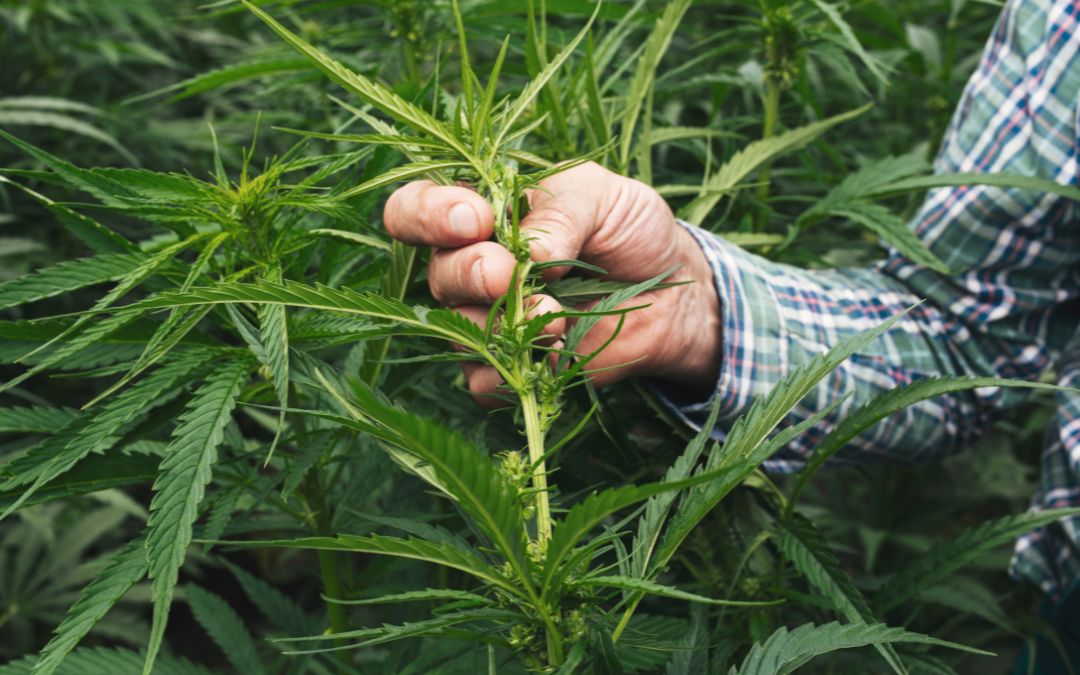Dear Patients, it has come to my attention that I have missed an important teaching moment with you all. This is a crucial topic for your health: where you buy your cannabis medicine is key to whether or not it’s safe to use!
However, the current status in the United States is complicated and makes being certain of your medication somewhat challenging. The key question is “how can I tell if this is safe?” While the situation is complex, the answer, for now, is simple. Stick with me to the end to understand the issue and get the straightforward answer to being sure it’s safe.
What is Hemp and How is It Related to Cannabis?
Hemp is a legal fiction! Cannabis is the genus (scientific name) for a group of plants that produce chemicals called cannabinoids that can be used for medical and non-medical purposes. Seems straightforward. But the government decided to call Hemp any version of cannabis bred to produce less than 0.3% THC by dry weight. So, cannabis and hemp are the same, except hemp is a version that makes little to no THC.
As you know, THC containing cannabis is available in states that have medical or non-medical legalization. Most states that provide for access have reasonable safety testing requirements to ensure that the products are safe – at least from contamination.
On the other hand, the federal government really messed up when they legalized hemp by providing absolutely no regulation of derived products whatsoever. This has led to a spate of cheaper, hemp-derived products on the market that have no safety testing. These are typically available on the web or in “CBD stores” that are not state-regulated dispensaries.
But it gets worse! The lack of regulation of hemp also provides that cannabinoids from hemp, like CBD, can be chemically manipulated after extraction to make other cannabinoids. This has led to a proliferation of novel intoxicating cannabinoids about which we know next to nothing.
Despite their growing availability, these products come with significant risks, as mentioned, due to the lack of regulation, safety concerns related to contamination and improper chemical synthesis, and the unknown effects of poorly researched cannabinoids. This article explores these potential dangers in depth.
Lack of Regulation and Safety Concerns
One of the biggest risks associated with hemp-derived cannabinoid products is the lack of strict regulation. Unlike pharmaceutical drugs or even state-legal cannabis products, these hemp-derived products do not undergo rigorous testing, as should be required by government agencies, before being sold. This can lead to several serious safety issues:
Inconsistent Labeling and Quality Control
Many products do not contain the amount of CBD or other cannabinoids advertised on the label. Some may have lower doses than claimed, reducing their effectiveness, while others may contain unexpectedly high doses, increasing the risk of side effects. Without regulatory oversight, consumers cannot be sure of what they are consuming.
Contamination with Harmful Substances
Since cannabis plants absorb substances from the soil, they may contain heavy metals, pesticides, or other harmful chemicals. If a product is not properly tested, consumers could be exposed to these contaminants, which may pose serious health risks over time, including toxicity and organ damage.
Improper Chemical Synthesis Risks
Some hemp-derived cannabinoids, such as Delta-7 THC, Delta-10 THC, Hexahydrocannabinol (HHC) and THCO-acetate (THCOA) or other synthetic cannabinoids, are produced through chemical conversion rather than natural extraction. These processes can introduce dangerous byproducts or unexpected variations (isomers and enantiomers) if not performed correctly. Poorly synthesized cannabinoids may cause unpredictable effects, including severe illness, nausea, confusion, or cardiovascular issues. Because these compounds are not well-regulated, there is no guarantee that they are safe for human consumption.
Presence of Harmful Additives
Since the industry lacks oversight, some manufacturers add synthetic cannabinoids or other unapproved substances to their products. These additives can have harmful effects, including nausea, hallucinations, and even dangerous cardiovascular reactions. Some synthetic cannabinoids have been linked to severe poisoning and even deaths.
Unverified Claims and Lack of Scientific Validation
Some hemp-derived products are marketed with claims of curing or treating serious medical conditions. Without sufficient scientific evidence, consumers may be misled into using these products instead of seeking appropriate medical care. The absence of clinical trials means there is little understanding of their long-term effects on human health.
Risks of Poorly Researched Cannabinoids
While CBD and THC are the most well-known cannabinoids, many hemp-derived products contain semi-synthetic cannabinoids like delta-7 or delta-10 THC, or HHC or THCOA. These substances have not been studied in humans and their risks are not known.
Uncertain Long-Term Health Effects
Because these cannabinoids have not been studied in humans, there is limited data on their effects on vital organs, neurological health, and overall well-being. Some early research suggests potential risks, but without regulatory oversight, consumers are essentially experimenting on themselves.
Risks of Drug Interactions and Biological Impact
Hemp-derived cannabinoids may interfere with the body’s ability to metabolize medications, potentially leading to dangerous drug interactions. Additionally, some research suggests that high doses of cannabinoids could have negative effects on the liver, immune system, or cardiovascular health, but more studies are needed to fully understand these risks.
Hemp-derived cannabinoid products have gained widespread popularity due to being cheap and easy to get but they also come with significant risks, primarily due to the lack of regulation and lack of safety data. Contamination, improper chemical synthesis, and the unknown effects of poorly researched cannabinoids all pose potential dangers to consumers. As promised, here’s the easy solution: Always purchase your cannabinoid products from state-legal dispensaries. This is true for both intoxicating products (like THC-dominant cannabis) and for non-intoxicating products like CBD or CBG (which I don’t recommend generally due to lack of conclusive human studies).

